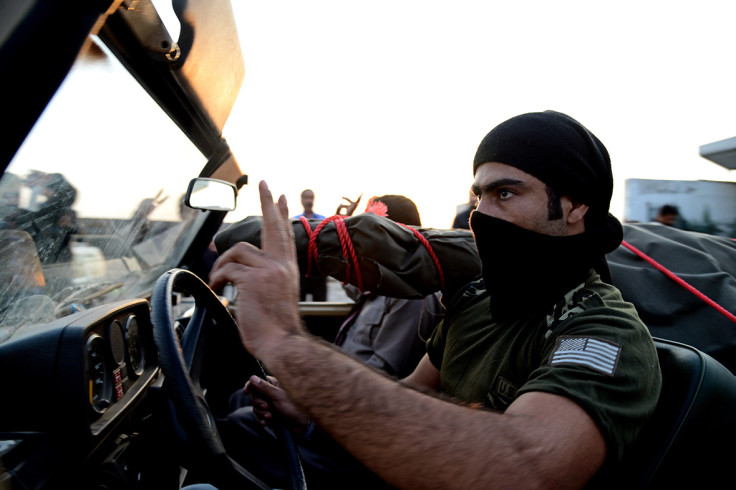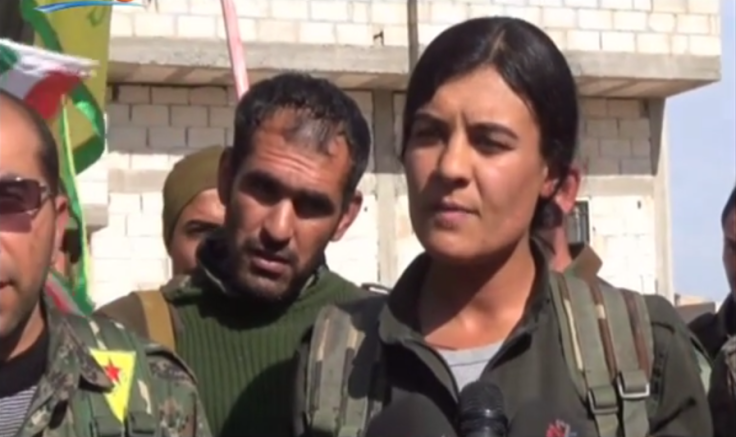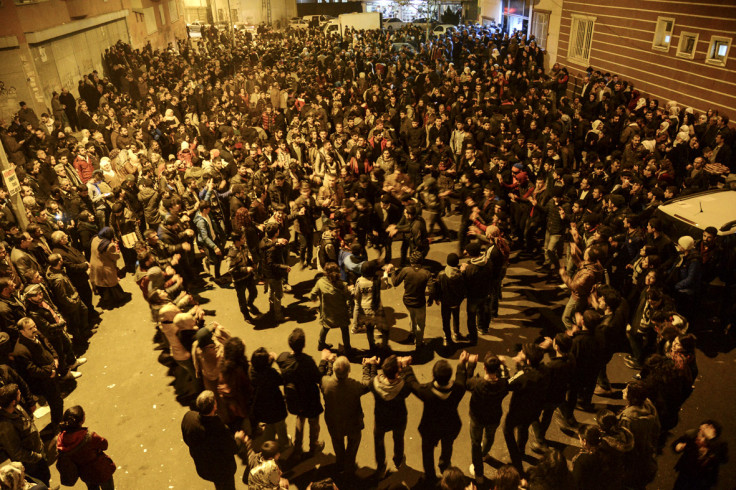Isis barbarians helping Kurdistan realise its independence dream

While the world's attention is gripped by the appalling descent into savagery in Syria and Iraq and its corollary, Islamist terrorism, one silver lining has emerged: the newly invigorated Kurdistan, the semi-autonomous region of northern Iraq.
Kurdistan is almost the only good news in an area of unremitting tragedy and conflict between the opposing forces of political Islam and religious fundamentalism. The rise of Isis has strengthened the Kurds' political and territorial position and aided their push for independence.
The disintegration of the Iraqi army enabled the Peshmerga to take control of almost all the disputed Kurdish-populated territory previously under the control of Baghdad, including the oil-rich province of Kirkuk. It is almost inconceivable that the Kurdistan Regional Government (KRG) will relinquish these gains.
Today the Kurdish Peshmerga are the only effective ground force fighting Isis. Their reputation, tarnished when they abandoned the joint defence of Mosul and nearby areas after the Iraqi army fled, has been re-established by their successful battle to evict Isis from Mount Sinjar and open a safe corridor for the remaining Yazidis stranded there, and more recently by the capture of Kobane.
Vested interests
The abiding dream of all 30 million Kurds, the world's largest ethnic group without their own homeland, is an independent country. In the case of the 5 million Iraqi Kurds, that dream appears more feasible than ever. Article 140 of the 2005 Iraqi Constitution, overseen by the Americans, called for a referendum in the Kurdish provinces now taken over by the KRG.
Successive Iraqi governments refused to allow it as the inevitable result would be to secede control to the Kurds. In theory the Kurds are now in a position to organise the referendum themselves and use it as the basis for a unilateral declaration of independence.
That won't happen, at least not yet. The KRG would prefer to achieve independence with the blessing of the international community and at least grudging acceptance from Baghdad. And despite the obvious appeal of democratic, stable and secular Kurdistan, the West, which lacks a coherent strategy towards the current mayhem in the Middle East, fears that the break-down of old colonial borders could result in even worse anarchy.
"The West's nightmare" says Bayan Abdul-Rahman, the glamorous Kurdish High Representative in London who has just been transferred to Washington, "is that if the Kurds achieve independence, the rest of Iraq will split into 'bad boy Sunnistan' in the middle, with the Shia south and its oil fields taken over by Iran."
'Their red light has turned to amber'
Another fear is that if Iraqi Kurdistan attains independence, it will encourage neighbouring Kurdish populations to demand their own autonomy. The Turkish government has long had a fractious relationship with the 20 million Kurds in Turkey.
But in recent years President Recep Tayyip Erdogan has changed the tone of the discourse and now enjoys excellent relations with Kurdistan Regional Government ( KRG ) President Masoud Barzani. Turkey is Kurdistan's largest trading partner.
"It took a long time for Erdogan to take a conciliatory position" said Safeen Dizayee, the articulate British-educated KRG spokesman in Erbil.
"Their previous red light has now turned to amber. After amber comes green. We tell the Turks that of course we support the rights of Turkish Kurds, but we will not incite them. We are pragmatic."
Kurdish society is religiously tolerant and easy-going. There is a Kurdish saying "compared to the unbeliever, the Kurd is a Muslim." Isis regards them as little better than infidels.

Bayan Abdul-Rahman says: "The Kurds practice Islam-lite. We are Kurds first and Muslims second. This is in complete contrast to most of the Arab world where their first identity is to religion, whether Sunni or Shia, with national identity a distant second."
There is a thriving Christian community in Kurdistan and the Kurds have given refuge to Christians fleeing Isis in the Mosul area and persecution in the rest of Iraq. Then there are half a million or more Yazidis who are ethnically Kurdish but believe in an exotic religion of their own which mixes Zoroastrianism with elements from Islam, Judaism and Christianity. Isis regards them as devil worshippers. In Kurdistan no one bats an eyelid.
'The Kurds practice Islam-lite. We are Kurds first and Muslims second.'
When Isis invaded Kurdistan in early August, Sirwan Barzani, the founder of the Kurdish mobile phone company Korek, was summoned back from Paris to coordinate the Peshmerga strategy against Isis. He is blunt about the cultural divide that separates Kurds from Arab Iraqis.
"Our neighbours are killing each other because of their names" Barzani says. "To us, Christians, Jews, Europeans, whatever, are just the same as us." (One of his key aides at Black Tiger Camp where we met was a charming, proudly Kurdish Jew ).
"Yet you [in the West] subsume our interest to theirs. America has been fixated on pushing democracy onto people who don't want it and reject it. We want our referendum in Kurdish territories and our freedom. But our friends say no, you have to stay in the arranged marriage made for you in colonial times.
"You tell us we have to live with people who have been fighting and killing each other for hundreds of years and will probably continue fighting each other. Who in their right mind would want to be part of that?"
Enlightened Self-Interest
The Middle East is facing a prolonged war between different sides of political Islam. Isis is one element of that war, albeit by far the most sinister and barbaric. Although Isis will surely be defeated as a powerful military force, new jihadi groups will emerge and the battle between different sides of political Islam, Sunni and Shia, will continue. As will Islamist terrorism, which currently represents the greatest threat to global security.
'We want our referendum in Kurdish territories and our freedom. But our friends say no, you have to stay in the arranged marriage made for you in colonial times.'
Although the West has a tacit, and understandable, alliance with Iran in the fight against Isis, all political Islam is inimical to long-term peace, progress and stability. Siding with one Islamist-dominated group against another is akin to riding a tiger.
As one senior Kurdish source, who wished to remain anonymous, put it, "Iran runs Iraq as a satellite state. They don't want to see democracy in Iraq. With the Iranian government, religious identity is foremost. The dream of the Shia Crescent [a contiguous Shia fiefdom spreading from Iran to the Mediterranean] still guides Iranian policy."
America is reportedly building an airbase at Harir in the mountainous area of Kurdistan, about 60 miles from the Iranian border. Yet while the United States, Britain and other western powers enroll the Kurds as indispensable allies in the battle against Isis, the West still refuses to countenance Kurdish independence and denies the Kurds the heavy weapons they need to defend themselves.

The fall of the old dictators and rise of extremist political Islam requires more innovative contingency planning than simply trying to preserve what were never homogenous nation-states in the first place. The mould may be irrevocably broken.
Instead, the West should give unequivocal support to those few forces in the region which uphold democratic, pluralistic values and have shown that they are strong enough and determined enough to oppose political Islam of any stripe.
In the immediate region of Iraq, Jordan is one such country. Jordan's King Abdullah is the only leader of the 22 Arab states to consistently and forcefully denounce Isis, as seen in his recent reaction to the contemptible murder of Moaz al-Kasasbeh, the Jordanian pilot.
The other is Kurdistan. The Kurds represent one of the few hopes for sanity and stability in a region torn asunder by religious hatreds, bigotry and demented violence.
Natural Allies
The Kurds are fervently pro-Western. They recognise that the 1991 no-fly zone imposed by America, Britain and France liberated the Kurds from Saddam's tyranny, enabling them to achieve the prosperity and freedom they enjoy today.
Many of the most senior government officials were educated in the UK and hold dual UK-Iraqi citizenship. And Kurdistan, whether semi-autonomous or fully independent, is going to be seriously rich. The present oil production of 380,000 bpd is set to rise to 500,000 bpd within months and they are targeting 2 million bpd by 2020. They have also found vast supplies of natural gas.
It is an irony of history that having been so badly let down by the West, at least prior to the 1991 no-fly zone, the Kurds have emerged as our most natural, and geographically pivotal, allies in the generational struggle against Islamist fanaticism.
Hume Shawcross is a political consultant based in Asia who has spent time in Kurdistan.
© Copyright IBTimes 2025. All rights reserved.





















